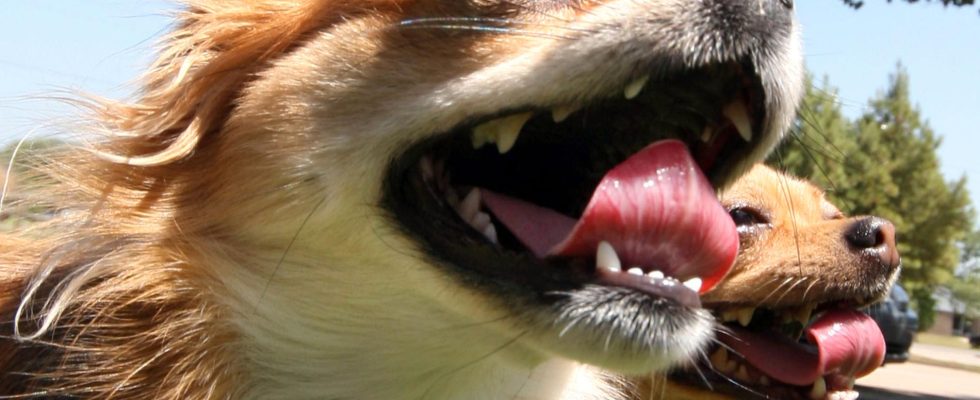Dogs seem more likely to be bitten when it is sunny, warm and with high levels of ozone in the air. The somewhat unexpected results come from an American study that analyzed tens of thousands of dog bites.
It is up to eleven percent more common for dogs to bite people on days with high UV radiation than if the radiation is low. That conclusion comes from a study where researchers went through 69,500 reports of dog bites that occurred over ten years in eight American cities.
The fact that the researchers decided to look into this is because they had previously seen connections between aggressive behavior and violent crimes among people in hot weather. It has also been seen that, among other things, some monkeys, mice and rats become more aggressive when the temperature rises.
Particles did not affect
According to the analyses, dog bites increased most when UV radiation was high, but also at warm temperatures and when ozone levels in the air were higher. However, the amount of small particles in the air did not affect the dogs’ appetite. The relationships between levels of UV radiation and ozone and the number of dog bites were seen both during the summer and winter months.
On average, three cases were reported per day where dogs bit people. However, there was no increase in the number of bites during holidays.
Unclear influence
The researchers reason about why heat, sun and ozone would make the risk of dog bites higher. Ozone, they note, has a strong smell, is reactive and could lead to the release of various substances that in turn affect the animals’ behavior.
Dogs bite mainly when they are stressed or feel threatened. The researchers cannot say whether it is the dogs themselves that are affected by the heat and sun or whether it is people’s changed behavior that leads to the dogs biting.
In the study, which is published in the journal Scientific reports, only bites that led to a visit to the healthcare system are included. The researchers did not have access to information about the breed of the dogs or the relationship to the people they bit. The bites occurred between 2009 and 2018.
